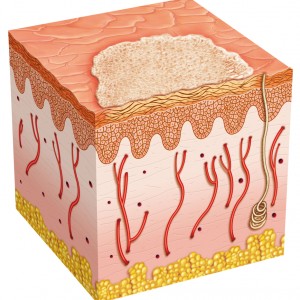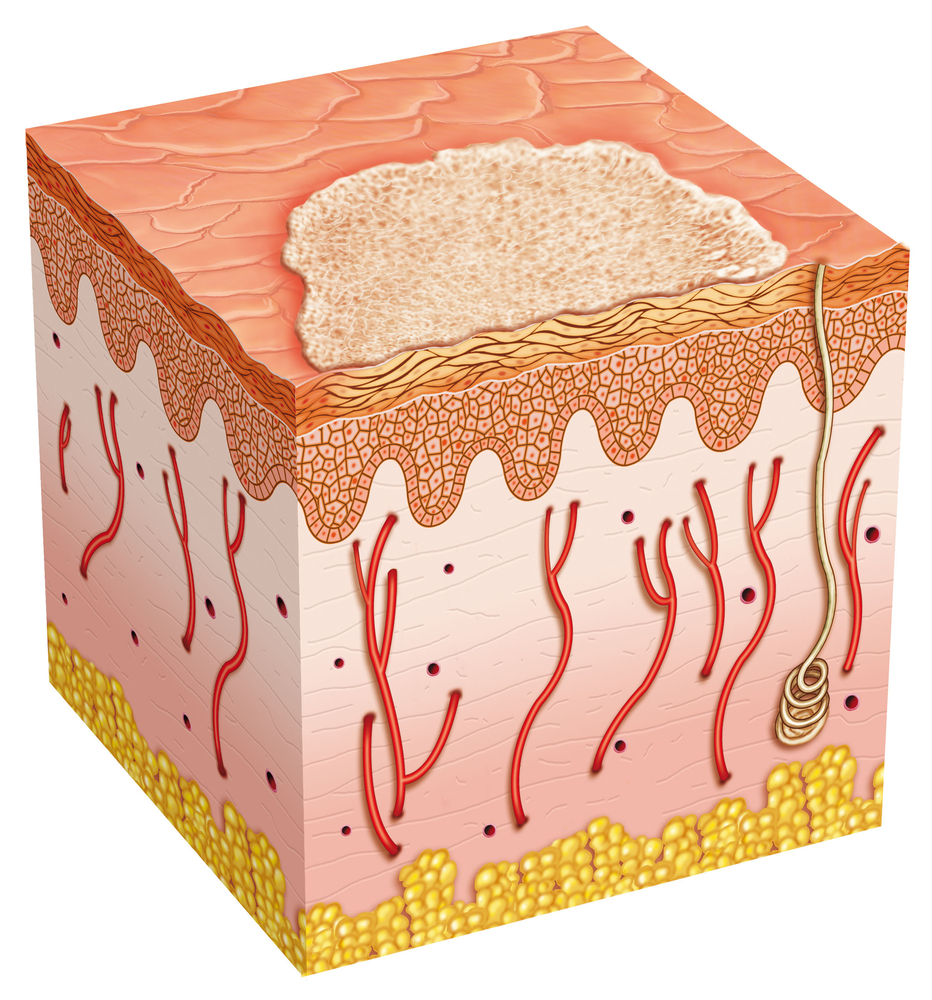 In a recent study titled “Unipotent, Atoh1+ progenitors maintain the Merkel cell population in embryonic and adult mice”, published in the The Journal of Cell Biology, a team of researchers has identified a progenitor population of skin cells that have the capacity to generate and maintain Merkel cells.
In a recent study titled “Unipotent, Atoh1+ progenitors maintain the Merkel cell population in embryonic and adult mice”, published in the The Journal of Cell Biology, a team of researchers has identified a progenitor population of skin cells that have the capacity to generate and maintain Merkel cells.
Located in the epidermis, Merkel cells are unique cells that can connect to nerve endings and play a crucial role in a person’s mechanosensation capacity. Importantly, these cells are thought to be the ones responsible for malignant transformation that causes Merkel cell carcinoma, an especially aggressive form of skin cancer that thus far has no efficient treatment. This type of malignancy tends to metastasize at an early stage, and it is characterized by the accumulation of cancer cells in the top layer of the skin, especially in areas commonly exposed to the sun, such as head, neck, arms and legs. In addition to the sun, other risk factors include a compromised immune system, for example patients who have received organ transplants, suffering from HIV/AIDS or from other types of cancers, the presence of the Merkel cell polyomavirus, which can participate in tumor formation
Even though researchers know that the Atoh1 transcription factor is crucial for Merkel cell’s differentiation, it is still unclear what are the progenitor cells that originate this class of skin cells during embryonic development and adult life.
In their study, the research team led by Dr. Stephen Maricich, University of Pittsburgh, found that some Atoh1-expressing cells in the hairy skin and whisker follicles of mouse skin are mitotically active at embryonic and postnatal ages, and can give rise to Merkel cells both during embryonic development and adulthood.
Importantly, upon genetic ablation of Atoh1+ skin cells in adult mice, there was a permanent reduction in Merkel cell numbers, proving that other stem cell populations are not capable of giving rise to Merkel cells.
After preforming a molecular technique named genetic fate-mapping, the team found that Atoh1-expressing cells give rise solely to Merkel cells, which can have important implications in the development of Merkel cell carcinoma, since this malignancy originates from Merkel cell’s progenitors.
These new findings will hopefully help researchers to understand the cell-specific events that mediate tumorigenesis specifically in Merkel cell carcinoma.


